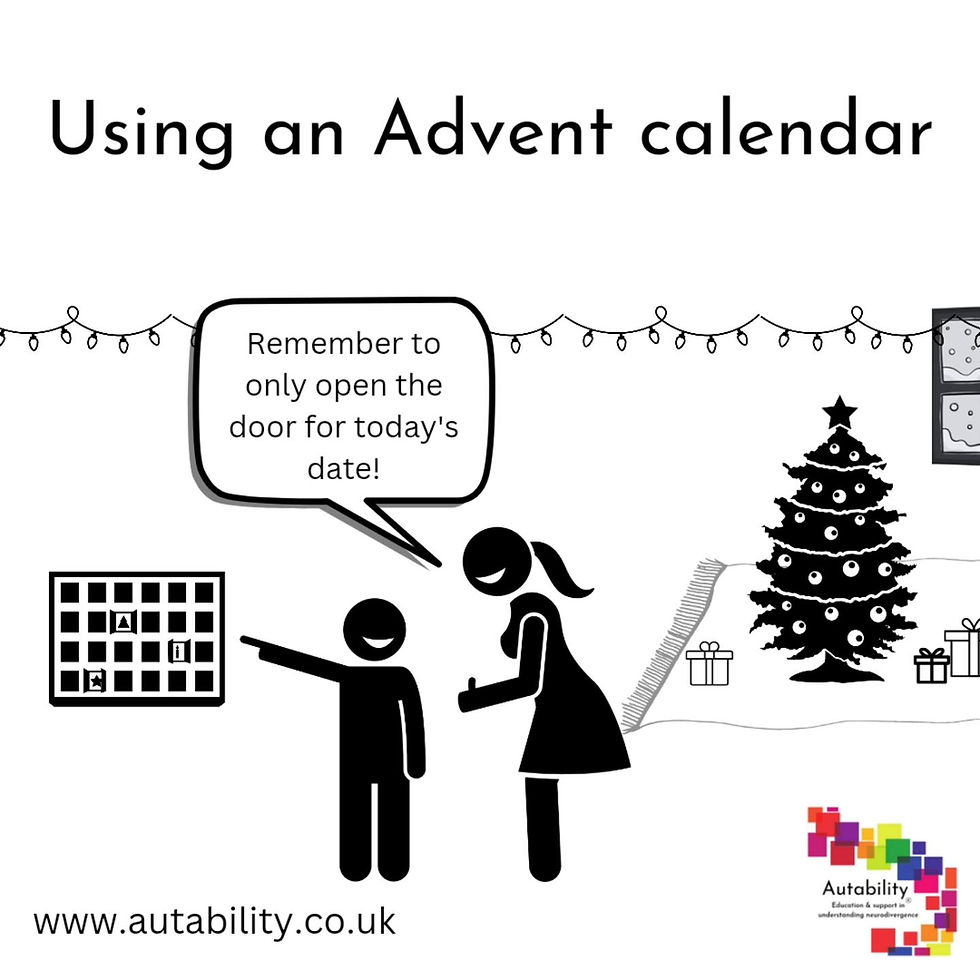What does a useful observation about an autistic child look like?
- Autability Ltd

- Jul 24, 2023
- 2 min read

This will depend enormously on each individual, but in essence it needs to be information that is relevant, accurate and can be actioned.
There is very little point in observing that an autistic child has a rigid mindset or struggles with social communication. That would be like saying an apple tree grows apples. What is important is that they are observing things that are an anomaly. This includes areas where a child may require additional support, details on how they find things difficult, and areas that need to be understood in order for the child to be kept safe. They also need to be balanced with the child’s strengths.
Whilst as parents you are not in the position to be able to dictate what is said by professionals about your child, you can and should make sure that it is appropriate to your child’s needs and not damaging to their self-esteem.
Below is an example of a quote from a report that I was sent by a parent.
"X refused to end the activity they were engrossed in. They were upset and despite being told twice that the toys were being put away, became naughty. They threw a toy at another child and then refused to say sorry."
This is entirely negative, shows a lack of understanding of autism and no advice on how to support X in the future. The following would have been more useful.
"X was clearly enjoying the game that they were playing at the start of the observation. I noticed that whilst staff told X it was time to end the activity but they didn’t use any visual prompts or cues. This led to X having a meltdown and some of the toys being thrown. Whilst still in the meltdown, X was being told continually to “say sorry” by staff. In the future if the visual cues and prompts are not enough to help X regulate and accept a change of activity, staff need to ensure he has access to a safe space in order to allow X to regulate quietly. It is important that X is not reprimanded for having a meltdown."
Not only does the second example give helpful information on how X needs to be supported, it also is a more positive read for his parents and if he were old enough, for him too. Observations need to be balanced and it isn’t simply an opportunity to list what a child can’t do or what they find hard.
.png)



Comments